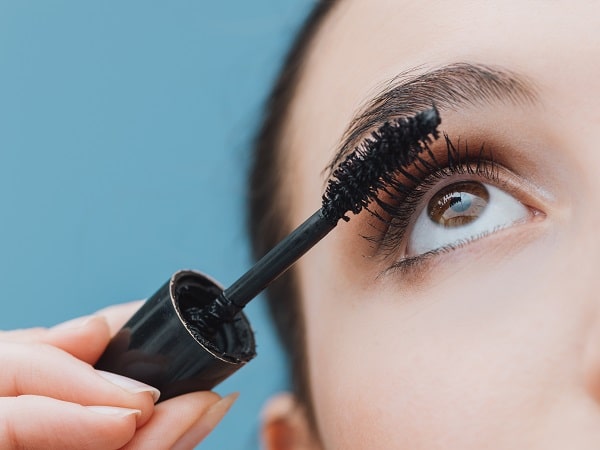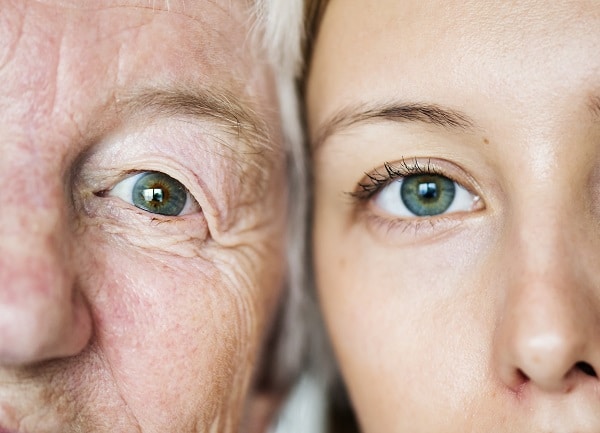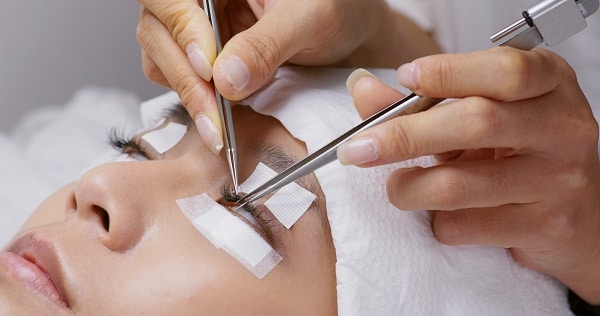Eyelashes play a pivotal role in framing the eyes, often regarded as the windows to the soul. Beyond their aesthetic appeal, they serve a protective function, shielding the eyes from debris and excessive light. Over time, many individuals notice a reduction in their eyelash length, causing concern and sometimes confusion. It’s essential to understand the underlying factors that might be causing this change. This article delves deep into potential causes, starting with the role of waterproof mascara, genetics, and the impact of stress on eyelash length.
Waterproof Mascara

Waterproof mascara, designed to withstand tears, sweat, and rain, has undoubtedly saved many from unsightly smudges. However, its resilience can become its downside. The removal of such long-lasting formulas often requires more rigorous effort and specific removers, which can lead to eyelash breakage. Each time an individual scrubs their eyes to get rid of the mascara, they risk weakening the delicate eyelash hairs, contributing to reduced length over time.
While the staying power of waterproof mascara is one of its most desirable attributes, it comes at a cost. Many waterproof formulas contain specific chemicals and waxes that keep the product in place. These ingredients, although effective in making the mascara resistant to moisture, can dry out the eyelashes. Prolonged exposure to these drying agents can lead to brittle lashes that are more susceptible to breakage, further exacerbating the problem of reduced length.
Genetics

Genetics plays a foundational role in determining numerous physical attributes, and eyelashes are no exception. Some individuals are naturally endowed with long, thick lashes, while others have shorter and sparser ones. This genetic lottery decides the growth cycle of eyelashes. A person’s genes dictate the anagen phase (the growth phase) of their eyelashes, determining how long the lashes can grow before they naturally fall out.
Aside from length, genetics also governs the thickness and density of eyelashes. Some people might observe that while their lashes are short, they are considerably dense or thick. Others might notice the opposite. Recognizing this genetic influence provides clarity and comfort to those questioning why their eyelashes might not mirror popular beauty standards. It’s crucial to remember that every individual’s eyelashes are unique, and genetic variations only add to the diversity of human beauty.
Stress

Stress, often dubbed a silent killer, has profound effects on various bodily functions, including hair growth. Prolonged periods of intense stress can lead to a condition known as telogen effluvium, where hair, including eyelashes, shifts from the growth phase to the resting phase prematurely. This sudden transition can result in noticeable thinning and shortening of eyelashes over time, causing concern for many.
The body’s response to stress involves releasing specific hormones, including cortisol. Elevated levels of cortisol for extended periods can disrupt the natural balance and cycle of hair growth. This hormonal change doesn’t just affect the scalp; it impacts eyelashes as well. Therefore, managing stress through relaxation techniques, adequate sleep, and a balanced lifestyle can be beneficial not just for overall well-being but also for maintaining those lush eyelashes.
Your Diet

Dietary habits can either bolster or hinder eyelash growth. Consuming excessive amounts of sugary foods, sodas, and high-glycemic foods can lead to inflammation, which is detrimental to hair growth. Moreover, excessive alcohol consumption and foods rich in saturated fats can reduce hair’s quality, making it brittle. Similarly, a diet low in protein can be problematic since hair is primarily made of protein. So, cutting back on these culprits is a wise step toward preserving eyelash health.
Conversely, certain foods are particularly beneficial for eyelash health. Salmon, packed with omega-3 fatty acids, enhances hair growth and sheen. Nuts and seeds, rich in vitamin E and biotin, help prevent hair loss. Green leafy vegetables provide iron, crucial for preventing hair thinning, while eggs offer a great source of protein and biotin. Integrating these foods into daily meals can support not only the health of eyelashes but also their overall growth, strength, and vitality.
Eyelash Extensions

Eyelash extensions, a favorite in the beauty industry, promise longer, fuller lashes without the need for mascara. However, these extensions come with a caveat. The glues and adhesives used to attach the synthetic lashes can sometimes weaken the natural eyelashes. Furthermore, the added weight of extensions places stress on the natural lash, increasing the likelihood of breakage.
The method of applying eyelash extensions can significantly influence their impact on natural eyelashes. Trained professionals who ensure minimal contact with the eyelid and use high-quality materials can reduce potential damage. It’s also essential for individuals to resist the urge to pull or tug at their extensions, as this can lead to premature fallout of natural lashes. Regular breaks between extension applications can also give natural eyelashes a chance to recover and regain their strength.
Aging

Aging is a natural process that affects every part of the body, including the hair. As years pass, the rate at which hair grows can decrease, leading to thinner and fewer hairs. This phenomenon isn’t exclusive to the hair on the head; eyelashes too can become sparser and shorter. Reduced circulation and the diminished production of essential oils can cause eyelashes to lose their previous luster and length.
Collagen, a crucial protein responsible for maintaining skin and hair elasticity, decreases with age. This reduction impacts the hair’s structure, including that of the eyelashes, making them more susceptible to breakage. Incorporating collagen-boosting foods or supplements can help mitigate these effects to some extent. Additionally, gentle care of the eyelashes, avoiding aggressive rubbing or pulling, can also aid in preserving their length and health during the aging process.
Curling Your Eyelashes Too Much

Eyelash curlers can undoubtedly make eyelashes appear longer and more lifted, adding to the eye’s allure. However, frequent and aggressive curling can cause undue stress on the lashes. The repeated pressure from the curling action, especially when done near the base, can weaken the eyelashes, making them prone to breakage and leading to a shorter appearance.
It’s not just the frequency but also the technique of curling that matters. Heating the curler excessively or clamping down too hard can damage the fragile eyelash hairs. Opting for gentle, steady pressure and ensuring the curler is clean and free from any mascara residue can help in reducing potential harm. It’s always beneficial to moisturize the lashes using serums or oils to strengthen them, ensuring they can withstand the curling process better.
The Bottom Line
Eyelashes, though small, play a significant role in facial aesthetics and protection. Numerous factors, from makeup habits to genetics, influence their length and health. By understanding these factors, individuals can make informed decisions to care for their lashes better. Embracing both preventive and proactive measures can aid in maintaining, if not enhancing, the beauty and length of those coveted lashes. Remember, it’s not just about external beauty; overall health and well-being can reflect beautifully through the eyes, and by extension, the eyelashes.


